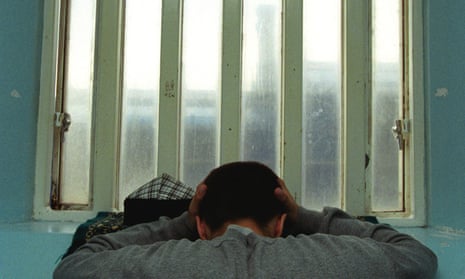Coronavirus measures in prisons in England and Wales have in effect delayed the release of potentially thousands of prisoners by blocking chances for inmates to take part in rehabilitation activities required to progress their sentences, campaigners say.
Nearly 11,000 prisoners serving indeterminate sentences, and about 5,815 inmates serving extended determinate sentences, need to be able to demonstrate to the Parole Board that they have taken part in certain activities to reduce their risk and allow their release.
But support to reduce the risk of reoffending and prepare people to lead law-abiding lives has all but stopped, potentially delaying the release of people back into the community, the Prison Reform Trust says in a report seen by the Guardian.
The uncertainty is leading to increasing despair and hopelessness and putting a significant strain on prisoners’ mental health and wellbeing, already suffering as a result of lockdown, the charity has warned.
Prisons were placed under a severely restrictive regime in March, which reduced time spent out of cells to about 30 minutes a day, suspended prison transfers and forced new arrivals to be quarantined for 14 days, and is yet to be fully unwound.
Peter Dawson, the director of the Prison Reform Trust, said: “The purposes of prison include working to ensure that the person emerges less likely to reoffend than when they went in; and that depends on opportunities for meaningful activities that develop skills as well as self-esteem.
“So long as the ‘regime’ for any prisoner consists of 23-hour days in [a] cell, the public are being shortchanged on their investment in prisons. The prison service has committed to a ‘rehabilitative culture’. Now is the time to double down on that commitment.”
Among the prisoners serving indeterminate sentences are those jailed under the terms of an imprisonment for public protection (IPP). Scrapped in 2012, the IPP was a form of indeterminate sentence under which offenders were given a minimum jail tariff but no maximum.
The Prison Reform Trust has been exploring the experience of prisoners and their families during the pandemic as part of its Capptive project. It draws on evidence from 85 prisons in England and Wales, 117 serving prisoners and 25 families, interviews with legal and criminal justice practitioners, as well as the findings of inspections at 15 prisons during the pandemic.
One indeterminately sentenced prisoner told the charity: “For myself it’s brought more uncertainty within uncertainty, because I am serving a short-tariff IPP, I had not long been on an offender behaviour course before lockdown … and I was due for parole sometime after September, I was told. But I never had a date, which was eating away at my mental health, and now I’m sure that I probably won’t see a parole board this year without completing this objective.”
A Ministry of Justice spokesperson said: “We remain vigilant and prison staff are working hard to move back towards a full regime where possible – 80% of prisons have now begun to resume work and education.”
